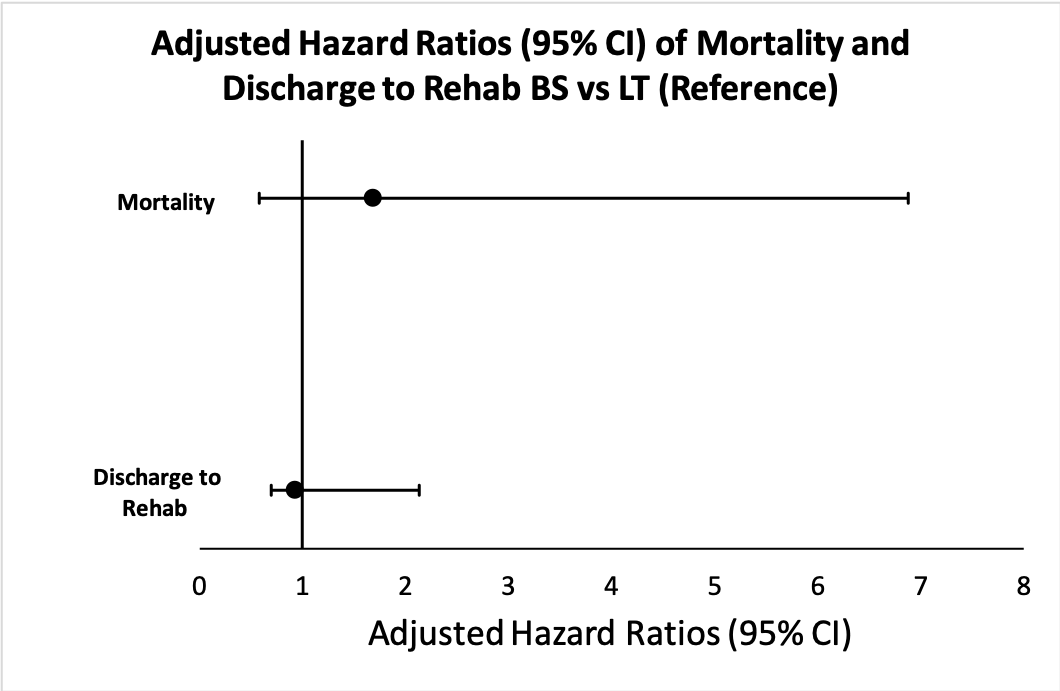Readmission Outcomes of Bariatric Surgery in Liver Transplant Recipients
1Department of Surgery- Division of Transplantation Surgery, University of Colorado Hospital, Aurora, CO, 2Thomas Jefferson University Hospital, Philadelphia, PA, 3Department of Surgery- Division of Transplantation Surgery, University of Pennsylvania Hospital, Philadelphia, PA, 4Department of Surgery, University of Pennsylvania Hospital, Philadelphia, PA
Meeting: 2020 American Transplant Congress
Abstract number: A-103
Keywords: Liver transplantation, Obesity, Post-operative complications, Safety
Session Information
Session Name: Poster Session A: Surgical Issues (Open, Minimally Invasive):All Organs
Session Type: Poster Session
Date: Saturday, May 30, 2020
Session Time: 3:15pm-4:00pm
 Presentation Time: 3:30pm-4:00pm
Presentation Time: 3:30pm-4:00pm
Location: Virtual
*Purpose: Bariatric surgery has increasingly been offered for morbidly obese patients prior to liver transplantation with the hope of improving both waitlist candidacy and post-transplant outcomes. There exist concerns that bariatric surgery may increase the post-transplant complication profile for patients, as such there has been tepid interest from some providers to refer waitlist patients for bariatric surgery. As such, it was the aim of this study to explore the readmission of profile of liver transplant candidates who had a history of bariatric surgery, compared to those who had not.
*Methods: The National Inpatient Sample/Healthcare Cost and Utilization Project Database was analyzed from January 1, 2016 to December 31, 2016 to identify all readmitted patients with history of liver transplantation. 87 patients were identified who had a history of bariatric surgery and liver transplantation (BS), and 7,589 patients were identified who only had a history of liver transplant (LT only). Patients history and readmission profile was elucidated utilizing ICD-10 codes. Readmission mortality, discharge to rehab, total charges and length of stay were compared utilizing multivariate regression.
*Results: BS patients had similar length of stay (5.5 days [BS] vs. 5.8 days [LT only], P=0.57) and total inpatient hospital charges ($69,708 [BS] vs. $61,434 days [LT only], P=0.24) associated with their readmissions. Adjusted mortality (aHR=1.68, 95% CI= 0.41 – 6.97, P=0.43) and discharge to rehab (aHR= 0.92, 95% CI= 0.74 – 1.15, P=0.49) was also similar between the cohorts.
*Conclusions: Bariatric surgery can safely be performed in liver transplant candidates and does not appear to significantly increase the complication profile following liver transplantation. History of liver transplantations should not deter referrals for surgical management of obesity.
To cite this abstract in AMA style:
Choudhury RA, Yoeli D, Yaffe H, Moore HB, Hoeltzel G, Schulick A, Abt PL, Dumon K, Conzen KD, Pomposelli JJ, Pomfret EA, Nydam TL. Readmission Outcomes of Bariatric Surgery in Liver Transplant Recipients [abstract]. Am J Transplant. 2020; 20 (suppl 3). https://atcmeetingabstracts.com/abstract/readmission-outcomes-of-bariatric-surgery-in-liver-transplant-recipients/. Accessed February 4, 2026.« Back to 2020 American Transplant Congress

